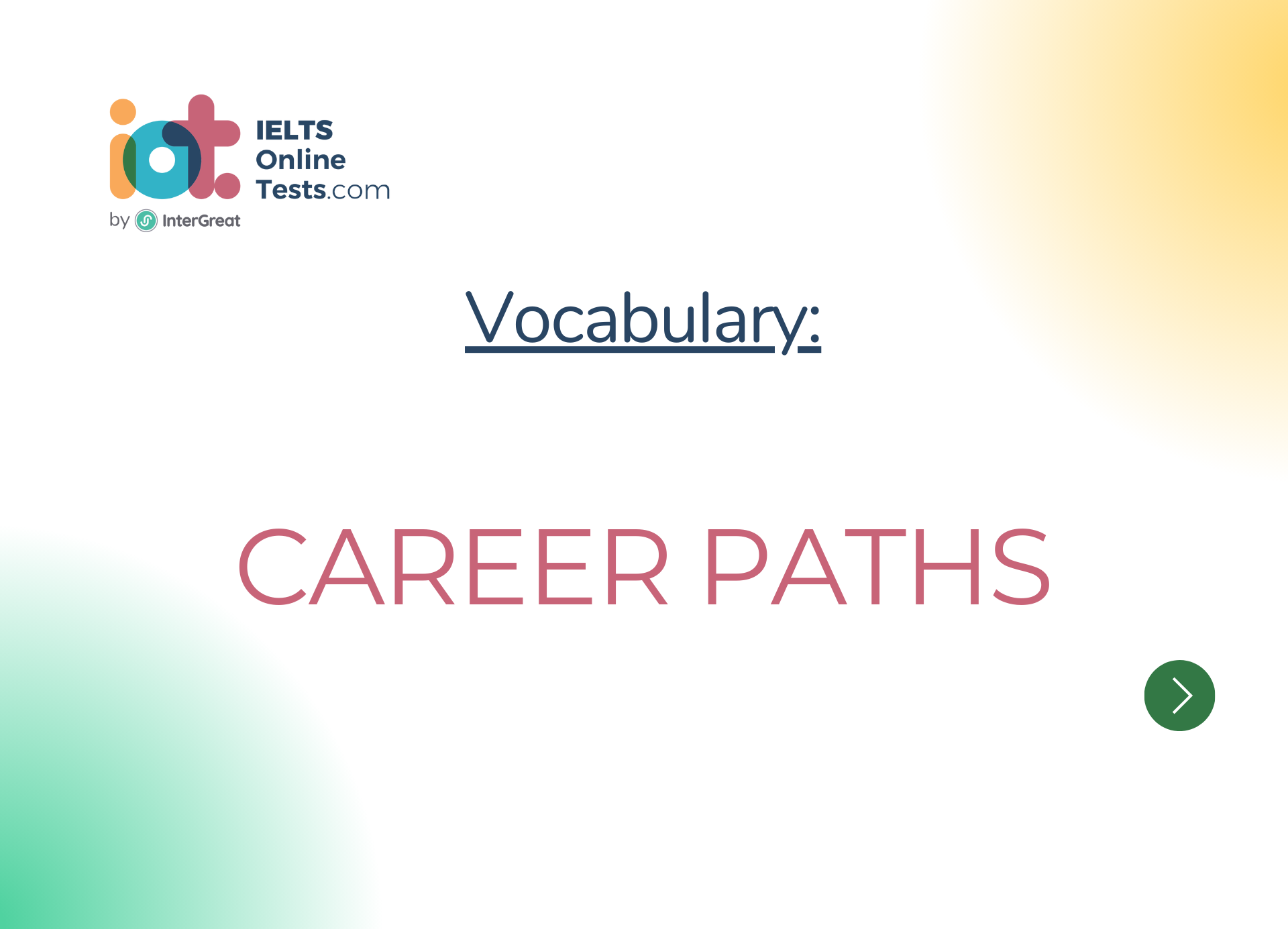
Career paths
Here are some vocabulary words related to career paths:
Career Goals:
The specific objectives and ambitions that individuals set for their professional future.
Career Development:
The process of advancing and growing within one's chosen career.
Job Prospects:
The potential opportunities for employment and career advancement in a particular field.
Career Advancement:
The progression and promotion within a career, often leading to higher positions and responsibilities.
Skill Set:
The specific abilities, knowledge, and expertise that are relevant to a particular job or profession.
Career Pathway:
The sequence of job roles and experiences that individuals follow to achieve their career goals.
Employment Opportunities:
The various chances to secure a job or work in a specific industry or occupation.
Career Change:
The transition from one career to another, often involving a shift in job roles or industries.
Professional Development:
The continuous learning and improvement of skills to enhance one's career opportunities.
Job Market:
The overall demand for workers and employment opportunities in a particular industry or region.
Networking:
The act of building professional relationships and connections to support career growth.
Internship:
A temporary position that provides work experience, often for students or recent graduates.
Mentorship:
A relationship in which an experienced professional guides and supports a less experienced individual.
Promotion:
The advancement to a higher job position within an organization.
Job Satisfaction:
The level of contentment and fulfillment an individual experiences in their job.
Qualifications:
The skills, education, and experience required for a particular job or career.
Career Planning:
The process of setting career goals and developing strategies to achieve them.
Career Counseling:
Professional guidance and advice to help individuals make informed career decisions.
Work-Life Balance:
The equilibrium between work-related activities and personal life responsibilities.
Job Security:
The assurance that one's job is stable and protected from potential risks or layoffs.
Professional Growth:
The continuous improvement and development of skills and knowledge in a career.
Career Assessment:
The process of evaluating one's strengths, interests, and values to determine suitable career options.
Transferable Skills:
Skills that can be applied across various job roles and industries.
Career Portfolio:
A collection of an individual's work samples, achievements, and qualifications to showcase to potential employers.
Job Stability:
The likelihood that a job will provide consistent income and long-term employment.
Career Transition:
The process of moving from one career to another, often involving significant changes in job roles or industries.
Professional Qualifications:
Official certifications or licenses that validate an individual's expertise in a specific field.
Career Growth Opportunities:
The chances for advancement and progress in a chosen career.
Job Satisfaction:
The level of contentment and fulfillment an individual experiences in their job.
Career Mobility:
The ability to move upward or laterally within a career path.
Job Application:
The process of applying for a specific job position by submitting a resume and cover letter.
Job Interview:
A formal meeting between a job applicant and a potential employer to assess suitability for the position.
Career Transition:
The process of moving from one career to another, often involving significant changes in job roles or industries.
Employability Skills:
The skills and qualities that make individuals attractive to employers, such as communication and problem-solving.
Job Description:
A detailed explanation of the duties, responsibilities, and requirements of a particular job.
Job Performance:
The effectiveness and productivity of an employee in their job role.
Employment Contract:
A legally binding agreement between an employer and an employee that outlines the terms of employment.
Professionalism:
The conduct, behavior, and attitude expected in a professional setting.
Job Search:
The process of actively looking for employment opportunities.
Cover Letter:
A formal letter that accompanies a resume when applying for a job, highlighting the applicant's qualifications and interest.
Remember to practice using these vocabulary words in context and expand your knowledge through reading and exposure to different career-related materials. Good luck with your IELTS preparation and your future career endeavors!




